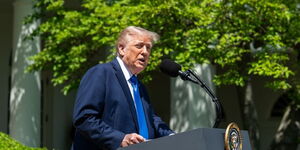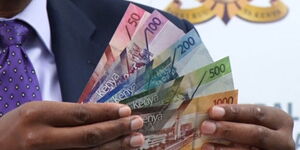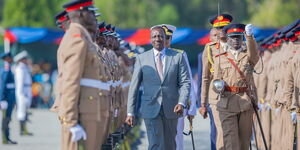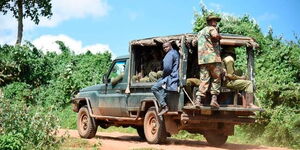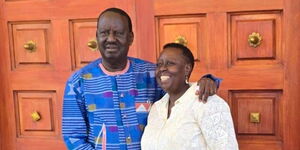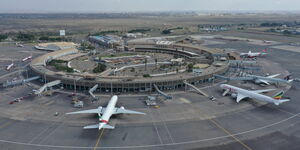The National Cohesion and Integration Commission (NCIC) has released a list of lexicon words it construes as hate speech or bordering incitement to violence.
NCIC chairperson, Rev. Samuel Kobia on Friday, April 8, explained that the lexicon words singled out by the Commission tend to provoke violence among different communities when used.
The words listed are in different dialects including English, Swahili, Sheng, and a variety of local languages.
The words banned for use in English include fumigation, eliminate and kill.
Words banned in Swahili include Kaffir (derived from the Arabic term Kafir which means disbeliever or one who conceals the truth), madoadoa (dots), chunga kura (secure the vote), mende (cockroach ), watu wa kurusha mawe (people who throw stones), watajua hawajui (they will know that they do not know), wabara waende kwao (people from off the coast should go back to their homes), wakuja (those that come), Chinja Kafir (kill the infidel) and kwekwe (weeds).
Sheng words which have been flagged include Kama noma noma, Kama mbaya mbaya (If it is bad, then it is bad), Hatupangwingwi (No one can arrange us) and operation Linda Kura (secure the vote).
In Kikuyu, the words flagged include Kihii (uncircumcised man), Uthamaki ni witu (the Kingdom is ours), and Mwiji in Kimeru (uncircumcised man).
Others include Kimurkeldet (brown teeth), Otutu labotonik (uproot the weed), and Ngetiik (Uncircumcised).
"The NCIC has classified terms, which have been regularly used in Kenya’s political landscape with the intent to provoke violence among various communities of diverse political viewpoints," Kobia stated.
"We have classified these terms as coded messages which can be used to activate hatred, and consciously eliminate other communities. These terms are in various languages including English, Kiswahili, Sheng, Kikuyu, Kalenjin and Non-verbal nods."
NCIC flagged different social media platforms as the main outlets where hate speech is mostly propagated. Kobia named Kenya Kwanza Alliance and Azimio La Umoja One Kenya as the main perpetrators of inciteful words.
He highlighted 39 social forums which are under active investigation and other 49 cases which relevant government authorities are probing.
He, however, emphasised that the commission will focus on social monitoring to ensure peaceful elections.
"We monitored Facebook, Twitter, YouTube among other social media platforms. The highest number that we identified to be spreading hate/incitement was Facebook followed by Twitter. In addition, we also received emails from the general public reporting complaint," Kobia remarked.

